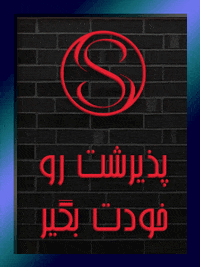Table of Contents
ToggleRussian language test (TORFL)
TORFL (Test of Russian as a Foreign Language) is an international Russian language test organized by the Russian Ministry of Science.
The TORFL international test of the Russian language since 2009 has five levels, which are: basic, first, second, third, fourth. The international test of the Russian language was founded in 1992, and after 1998, this international test of the Russian language has become mandatory for entering Russian universities.
TORFL is one of the most famous international tests of the Russian language. To get an international certificate of Russian language knowledge, it is very valuable to have Turfel certificate. Some general information about the TORFL test includes the following:
- This test has 5 levels from basic to level 4.
- Having a Turfel degree is mandatory to enter most Russian universities.
This exam will be held in 2 days.


Like other language tests, the TORFL test consists of different parts and skills. In order to achieve an acceptable score, the necessary expertise must be acquired in all these skills. These skills include:
- Grammar and structure section
- Vocabulary section
- Listening section
- Writing section
- Speaking part
- Reading and comprehension section
Test execution program
As mentioned, the exam will be held in two days. These two days include the following sections:
- The first day of the exam: vocabulary / grammar / reading / listening
- The second day of the exam: oral / written
TROFL test has 5 different levels. 5 levels of the Russian language test according to the European level are equivalent to the following levels:
- Basic level: A2 level
- First level: B1 level
- Second level: B2 level
- Third level: C1 level
- Fourth level: C2 level
Applicants must participate in this exam to continue their studies in higher education in Russia.
Introducing the levels of the International Russian Language Test (TORFEL)
level | Qualifications | The abilities of the holder of each level | Minimum knowledge of vocabulary |
Introductory (part of the basic level) | Success in the preliminary exam indicates proficiency at the preliminary level of the Russian language, which enables the applicant to meet basic communication needs in a limited number of everyday situations. | 750 | |
the base | Success in the basic (pre-intermediate) test indicates competence at the basic level of the Russian language, which enables the applicant to meet basic communication needs in a limited number of everyday situations and cultural communication. | This level is required to obtain Russian citizenship. It is not sufficient to study in Russian educational institutions, except for preparatory courses of universities held for foreigners. | 1300 |
level one (intermediate) | Success in the Level 1 test indicates proficiency in the intermediate level of the Russian language, which enables the applicant to meet basic communication needs in everyday situations, cultural, educational and professional communication. | The ability to enter higher education institutions is a requirement for Russian language students. This level is usually obtained after one year of the basic course. | 2300 |
Level 2 (Advanced) | Success in the level 2 exam indicates a high level of Russian language competence, which enables the applicant to meet a wide range of communication needs in everyday situations, cultural, educational and professional communication. | The ability to obtain a bachelor's degree, master's degree, and doctorate from Russian universities, except in some fields of study. | 10000 |
Level 3 (Professional) | Success in the level 3 test shows the competence at the professional level of the Russian language, which enables the applicant to communicate smoothly and fluently in all communication situations. To conduct scientific research in Russian and teach Russian in elementary level courses | The ability to participate in linguistics, translation, interpretation, editing, journalism, political affairs (diplomatic) and management in Russian-speaking environments and to obtain a diploma, bachelor's degree, master's degree and doctorate in these fields (except language specialization) knowing) | 12000 (7000 of the most used words) |
Level 4 (Complete Mastery) | Success in the level 4 test indicates competence at the level of expertise and mastery in the Russian language, which the applicant has the same competence in the Russian language as Russian speakers. | Ability to obtain a master's degree in linguistics and do all work in the field of Russian linguistics | 20000 (8000 of the most used words) |
In order to receive a free consultation and register for TORFL classes and exam, contact us on WhatsApp.
Or you can fill out the form, so that our consultants will contact you as soon as possible.
Profile Form




